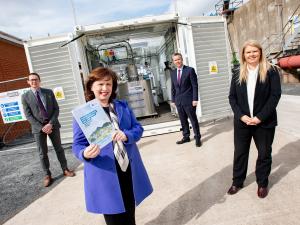
By PA news
Floating wind turbines are set to provide one of the best long-term options for generating renewable energy for Northern Ireland, a new strategy has proposed.
Turbines fixed to the seabed could also play a key role but their widespread use would be limited by the geology, according to the draft Northern Ireland Energy Strategy.
Floating platforms enable turbines to be located in deep water where it would otherwise be impossible to erect a fixed structure.
They are instead tethered to the seabed and can generate higher electricity loads because they are exposed to faster wind speeds further out to sea.
The technology is still in the early stages of development.
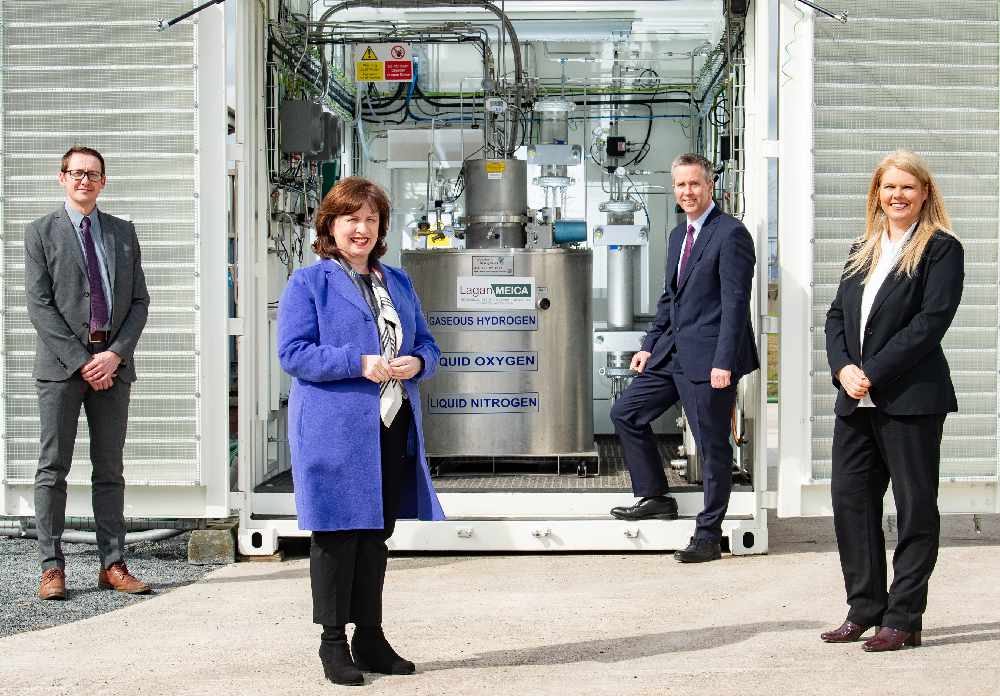
(Department for Energy of Economy Minister Diane Dodds (second left) with (left to right) Managing Director of SONI NI, Alan Campbell, Paul Stapleton, Chief Executive of Northern Ireland Electricity and Sara Venning, Chief Executive of Northern Ireland Water at the site of the ground-breaking electrolysis demonstrator at NI Water plant at Kinnegar, Co Down.)
The draft strategy, which says the platforms are not yet commercially viable, does not envisage significant use of floating turbines until the 2030s and 2040s.
As a first stage, the strategy proposes that, in the remainder of this decade, focus is placed on developing policies around the use of fixed platforms and in trialling floating platform projects.
A previous Department for the Economy report questioned the suitability of fixed wind farms off the coast of Northern Ireland, citing the likely objections to erecting huge structures in shallower waters within sight of land.
Northern Ireland currently generates almost 50% of its electricity from renewable sources.
The draft strategy sets a 70% renewable electricity target by 2030, with the potential to increase that percentage if that becomes achievable and cost-effective.
This is among a range of proposals aimed at achieving the overall goal of achieving net-zero carbon emissions by 2050.
The draft strategy also raises the prospect of a ban on solid fuels such as coal and wet wood in Northern Ireland.
In addition, it proposes the development of electric vehicle infrastructure in the region and further innovative around the use of electrolyser technology to generate hydrogen energy from water.
Economy Minister Diane Dodds launched a public consultation on the strategy on Wednesday.
She said the drive towards net zero would provide opportunities to create jobs and encourage investment.
“Climate change is one of the biggest issues facing society and we are also dealing with the economic impact of the pandemic,” she said.
“Whilst these are undoubtedly challenges for us, we must look for the unique opportunities to shape our future.
“We have seen the success that Northern Ireland has had in meeting almost 50% of our electricity consumption from renewable sources.
“In order to eliminate carbon emissions from energy, our business and domestic consumers will need to make cleaner, leaner energy choices which will include moving away from fossil fuels by switching to renewable technologies and doing more with less.
“These changes will offer numerous opportunities, including the creation of new jobs, developing skills and encouraging local investment.
“The new Energy Strategy will help Northern Ireland rebuild stronger as a greener economy, as well as providing healthier lifestyle choices for us, our communities, and our environment.”
The consultation has been welcomed by leading organisations within the energy sector, including Northern Ireland Water, Northern Ireland Electricity and electricity transmission system operator SONI.
The consultation will be open for responses until June 30.
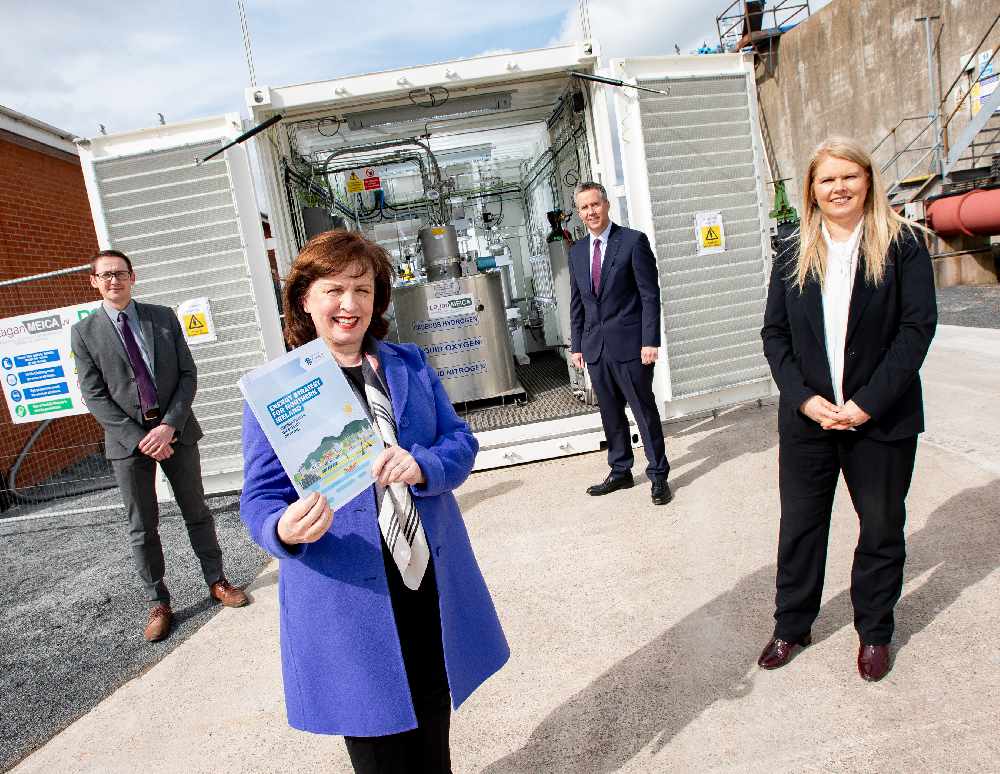
(Economy Minister Diane Dodds (second left) with (left to right) Managing Director of SONI NI, Alan Campbell, Paul Stapleton, Chief Executive of Northern Ireland Electricity and Sara Venning, Chief Executive of Northern Ireland Water)


 Teenage girl killed in road crash named as Kamile Vaicikonyte
Teenage girl killed in road crash named as Kamile Vaicikonyte
 Covid-19 inquiry ‘an opportunity for candour’ from Stormont leaders
Covid-19 inquiry ‘an opportunity for candour’ from Stormont leaders
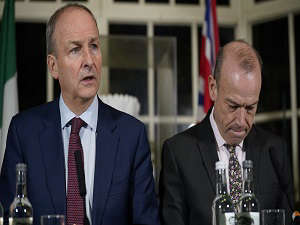 UK and Irish ministers to meet amid row over migration
UK and Irish ministers to meet amid row over migration
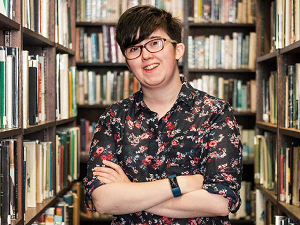 Three men set to go on trial for murder of journalist Lyra McKee
Three men set to go on trial for murder of journalist Lyra McKee
 Swann refuses to rule out resigning if budget is not changed
Swann refuses to rule out resigning if budget is not changed